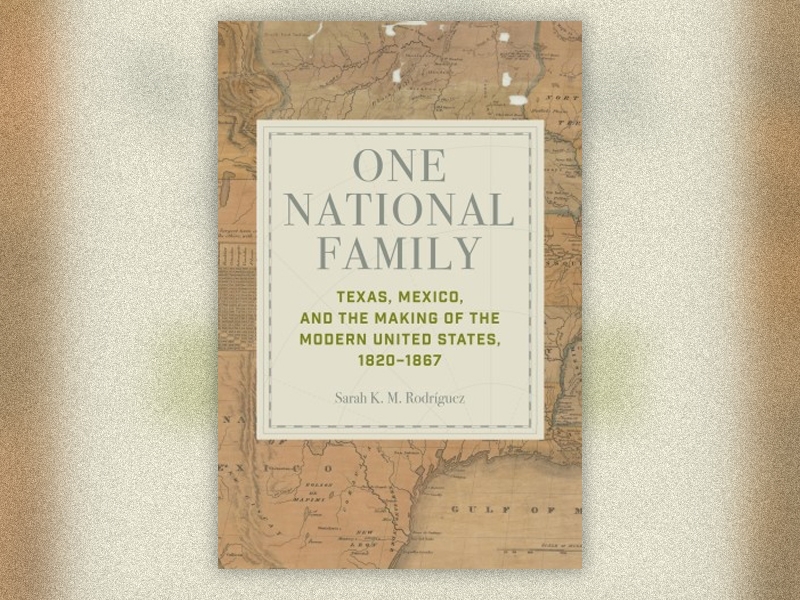Sarah Rodríguez has published a new book, One National Family: Texas, Mexico, and the Making of the Modern United States, 1821-1867 (Johns Hopkins University Press, 2024).
Few comparative histories of the U.S. and Mexico exist and far fewer that place Texas at the center of both countries' shared path to modern nationhood. In One National Family, Rodríguez challenges longstanding assumptions about the comparative strength, viability and appeal of Mexico and the U.S.
She argues that the thousands of U.S. immigrants to Mexican Texas in the 1820s and early 1830s were attracted to that country's political system as much as its cheap land and economic opportunity and that their promise to remain loyal Mexican citizens was sincere — at least for some. Yet, if Mexico's system of divided sovereignty and unobtrusive federal authority was its strength in the 1820s, it would be the source of conflict and secession a decade later as white agrarian, and often slaveholding, minorities drew on the theories associated with this system to declare their independence from Mexico and then the U.S. Indeed, by the 1840s, the Republic of Texas had become a model and inspiration for centrifugal and often racially hierarchical republics across the continent.
But One National Family argues that because of its dramatic territorial losses, Mexico would encounter and remedy threats to its sovereignty and embrace the precepts of democratic majoritarianism, territorial permanency and racial equality before the United States did.
One National Family draws from extensive research in archives in Mexico City, Austin, Los Angeles and Washington, D.C., and makes important contributions to the fields of 19th century U.S., Mexican and borderlands history. It highlights the power and appeal of early Mexico, a country long considered weak and disintegrative and insists that both Mexico and the U.S.
Finally, it places the Mexico-U.S. borderlands at the center of the most important political debates of the age including secession, slavery, federalism and democracy. One National Family is "A tour de force," according to one reviewer, and another writes that it "will change forever how readers think about manifest destiny and the U.S.-Mexico borderlands."
Caree Banton, department chair, commended Rodríguez on the publication of her new book, One National Family: Texas, Mexico, and the Making of the Modern United States, 1821-1867, published by Johns Hopkins University Press. The book proposes a valuable new comparative exploration of nationhood in the United States and Mexico through the shared borderland history in Texas.
Topics
Contacts
Melinda Adams, administrative specialist III
Department of History
479-575-3001, mmadams@uark.edu
